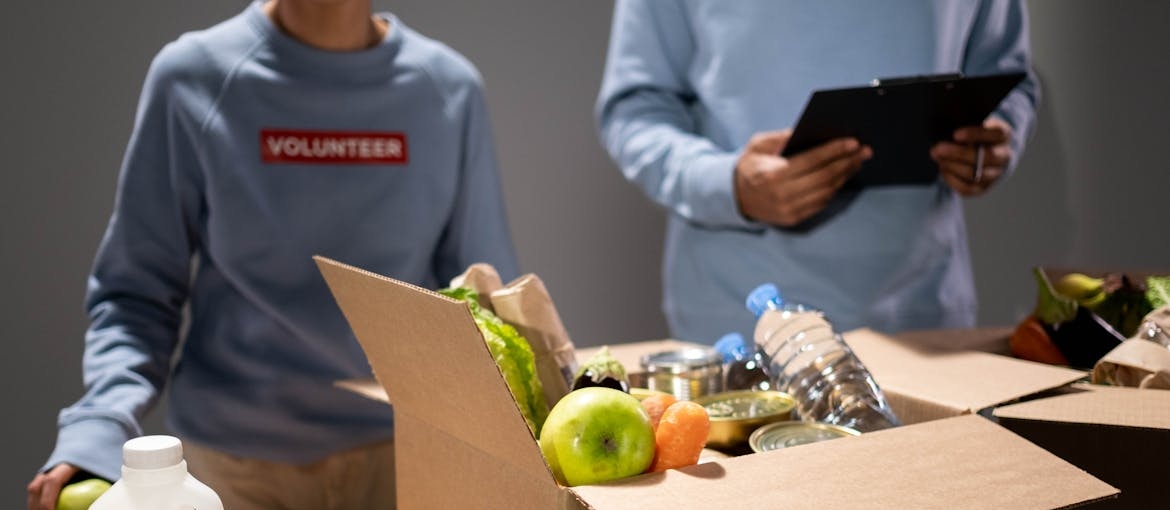Recovery doesn’t stop after treatment ends. It’s an ongoing process that depends on the choices you make every day. Many people wonder what comes next after completing a program, and that’s where lifestyle changes to support recovery become so important. Simple daily habits can help you stay focused, rebuild your health, and protect your sobriety. It’s not about perfection, but about small, steady steps forward. Things like exercise, balanced meals, and healthy sleep patterns all play a role. So do relationships, hobbies, and ways to manage stress without turning back to old habits. If you’ve been through drug and alcohol rehab in West Virginia, or anywhere else, making these changes can guide you toward lasting progress. You deserve stability, peace, and a future that feels within reach.
Nutrition and Physical Wellness
Your body needs healing after addiction. The role of nutrition in long-term sobriety is often underestimated but deeply important. What you eat affects your mood, energy, and ability to focus. Balanced meals improve mental clarity and help your body repair itself. Exercise also supports recovery by reducing stress and lifting mood. These are lifestyle changes to support recovery that directly influence your strength and stability.

Think of food and movement as tools that keep your mind sharp and your body steady. Drinking water, choosing real foods, and staying active all build resilience. These daily habits make relapse less tempting because you feel stronger overall. Lifestyle changes to support recovery begin with what you put in your body. Small choices every day add up to real progress.
Building Healthy Routines
Creating structure helps you feel steady during recovery. A daily routine lowers stress and keeps you focused. When your day has rhythm, it’s easier to avoid slipping into old habits. Routines make life predictable, which brings a sense of calm and stability. These habits may seem small, but over time, they add up to lasting change. Building structure is one of the most effective lifestyle changes to support recovery. Use these ideas to create balance and strength in your daily life:
- Morning routine: Wake up at the same time and start with positive habits.
- Meal schedule: Eat balanced meals at consistent times to stabilize energy.
- Exercise time: Plan activity that fits your day, even if it’s short.
- Rest periods: Build in breaks to avoid burnout and overwhelm.
- Sleep hygiene: Stick to a bedtime routine for better rest.
- Daily reflection: Spend a few minutes reviewing progress and challenges.
- Consistent hobbies: Fill free time with healthy interests to prevent boredom.
Strengthening Mental Health
Recovery lasts a lifetime, and your mental health is central to that. When treatment ends, the challenge is learning how to keep balance in everyday life. Building healthier coping skills, creating routines, and finding outlets for stress all matter. Lifestyle changes and recovery connect deeply with mental health because both depend on steady habits. Life changes recovery takes daily effort, but the benefits are worth it. These strategies can help you protect your mind and keep moving forward.
Practicing Mindfulness and Meditation
Mindfulness helps you focus on the present without getting lost in worry or regret. Meditation can reduce stress, ease anxiety, and help you stay grounded. Many people discover that holistic therapy for addiction combines mindfulness practices with recovery goals. Even five or ten minutes of breathing exercises can reset your thoughts and give you strength to keep going. Try adding meditation into your mornings or evenings, or whenever cravings feel heavy.

Lifestyle changes to support recovery don’t have to be complicated. Small practices like mindful walking or journaling help you stay aware of emotions. Embracing change recovery for life means finding ways to manage stress before it builds. This approach gives you tools to respond instead of react, protecting your mental health and your sobriety.
The Importance of Therapy and Counseling
Therapy provides a safe place to talk through challenges that come up during recovery. Counselors can guide you through stress, trauma, and personal struggles that may still affect your life. Many treatment centers encourage group therapy for addiction because it offers support and connection. Talking openly with people who understand your experiences helps reduce isolation and shame.
Counseling also helps you set goals, learn coping skills, and strengthen confidence. Lifestyle changes and recovery depend on the ability to process emotions in healthy ways. Therapy gives you strategies to handle setbacks without returning to substance use. Life changes recovery includes building support, and counseling is a strong foundation. You don’t have to carry everything alone—professional help keeps you steady and focused.
Stress Management Techniques for Lasting Sobriety
Stress can make recovery harder, especially when daily pressures build up. Creating healthy coping skills helps you respond without feeling overwhelmed. Exercise, journaling, or listening to music can calm your mind. Talking to supportive people also makes a difference. Many people benefit from motivational interviewing for substance abuse because it helps identify patterns and create goals.
This approach can shift your thinking from frustration to action. Lifestyle changes and recovery both improve when stress is managed consistently. Small routines, like deep breathing before bed or short walks during the day, help more than you may realize. Life changes and recovery are not about avoiding stress completely but learning how to face it in healthier ways. With practice, stress no longer controls your progress.

Building Positive Relationships
The people you surround yourself with can either build you up or hold you back. Recovery becomes much harder when you keep toxic relationships, but it feels more secure when you’re supported by people who care. Building strong connections is one of the most powerful lifestyle changes to support recovery. These relationships give encouragement, accountability, and motivation to keep going. A healthy network reminds you that you don’t have to face challenges alone. Here are ways to strengthen relationships that truly support your goals:
- Supportive friends: Spend time with those who respect your recovery.
- Family healing: Work to rebuild trust through open communication.
- Healthy mentors: Learn from people who live balanced, sober lives.
- Peer groups: Connect with others facing the same struggles.
- Boundaries set: Limit or cut ties with toxic people.
- Positive influence: Seek friends with shared healthy habits.
Continuing Care and Support Systems
Recovery doesn’t end when treatment stops. Long-term progress depends on the support you build afterward. Continuing care helps you stay focused, hold yourself accountable, and feel less isolated. Aftercare programs, support groups, and accountability partners all work together to strengthen recovery. Lifestyle changes to support recovery last longer when combined with ongoing care. Embracing change recovery for life means keeping connections that guide you through the ups and downs of sobriety.
The Role of Aftercare Programs in Recovery
Aftercare gives you structure and support once you leave treatment. These programs often include therapy sessions, group meetings, and wellness activities that keep you focused on recovery. Some people avoid aftercare because of financial worries, but options like blue cross blue shield drug rehab coverage can help. Many insurance plans include ongoing support, making it easier to stay engaged.

Lifestyle changes and recovery are more effective with a structured plan beyond initial treatment. Aftercare keeps you connected with professionals who understand relapse risks and can guide you through them. Life changes recovery requires long-term effort, and aftercare provides the consistency needed for progress. With steady follow-up, you’re less likely to feel alone or lose focus when challenges appear.
Attending Support Group Meetings Regularly
Support groups connect you with people who understand recovery on a personal level. Sharing your story and hearing others talk about theirs can reduce feelings of isolation. Many groups focus on different needs, including programs like alcohol rehab for seniors, which address age-specific challenges. Attending regularly keeps recovery at the center of your life. These meetings remind you that progress doesn’t have to happen alone.
Lifestyle changes and recovery feel stronger when supported by others who care about the same goals. Life changes and recovery often bring new challenges, and groups provide practical advice for facing them. The accountability and encouragement found in meetings help prevent relapse. Even one meeting a week can make a difference in your outlook and motivation.
How Accountability Partners Encourage Progress
An accountability partner helps you stay on track during recovery. This person checks in, listens, and reminds you of your goals when things get hard. Some treatment programs use REBT for addiction to help people reshape negative thoughts and build healthier patterns. Having someone by your side reinforces these skills.
Lifestyle changes and recovery improve when accountability becomes part of your routine. It’s harder to slip into old habits when you know someone is supporting your efforts. Life changes recovery is more sustainable when you have guidance and encouragement. Whether it’s a friend, sponsor, or mentor, an accountability partner provides motivation on difficult days. These relationships keep you honest with yourself and focused on long-term recovery.

Avoiding Triggers and High-Risk Situations
Triggers are reminders that push you toward old habits, and they can feel overwhelming if you aren’t prepared. Learning how to avoid them—or handle them when they show up—is a core part of recovery. These situations can’t always be controlled, but your response can be. Building a plan keeps you in charge, not the trigger. Lifestyle changes to support recovery include reducing exposure to high-risk places, people, and emotions. Use these strategies to stay safe and protect your progress:
- Trigger awareness: Identify places, people, or feelings that spark cravings.
- Avoid risky spots: Stay away from bars, parties, or harmful environments.
- Stress outlets: Use exercise, art, or journaling instead of substances.
- Support calls: Reach out to a sponsor or friend when tempted.
- Planned responses: Create short scripts for saying no in pressure situations.
- Healthy distractions: Watch movies, read, or listen to music when cravings rise.
Finding Purpose and New Interests
Recovery feels stronger when you fill your time with purpose. Discovering new hobbies and interests creates motivation that lasts. Many people find meaning through creative activities, sports, or learning new skills. Purposeful living makes it easier to avoid boredom, which can often lead to cravings. Lifestyle changes to support recovery don’t have to feel forced—try things that excite you.
Volunteering, pursuing career goals, or simply enjoying new activities can give you a sense of direction. These experiences rebuild confidence and self-worth. Life changes recovery isn’t only about avoiding substances but also about creating a life that feels meaningful. Every new interest you build becomes another reason to stay on track. Recovery is about finding the life you want to live every day.

Maintaining Long-Term Sobriety
Recovery is a lifelong process. Lasting progress comes through consistent habits, accountability, and hope. Lifestyle changes to support recovery protect against relapse every day.
- Daily check-in: Review your mood and choices each evening.
- Ongoing therapy: Stay connected to counseling for steady growth.
- Group meetings: Attend regularly for peer support.
- Relapse plan: Have steps ready if you feel triggered.
- Positive goals: Keep working toward things that excite you.
- Journaling habit: Track progress and setbacks to stay aware.
The Ongoing Role of Lifestyle Changes After Treatment
Recovery is not a single event. It’s a process that grows stronger with the right habits. The work you do after treatment is just as important as the decision to seek help. Choosing healthier routines, building support, and staying mindful of triggers can keep you moving forward. Small steps, practiced daily, make the biggest difference. Lifestyle changes to support recovery don’t need to be overwhelming. Focus on what feels realistic for you and build from there. Every positive choice helps protect your sobriety and gives you more confidence in your future. If you struggle, reach out for help instead of trying to do everything alone. Recovery is possible, and with steady effort, your life can become more stable and fulfilling than you may have thought possible.



